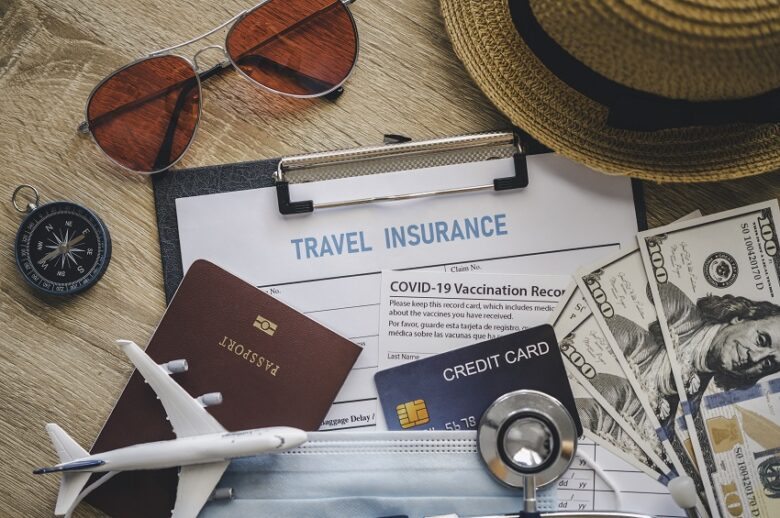Travel insurance can provide you with financial protection and peace of mind against a range of unexpected events, making it an important part of preparing for any trip. Whether you’re traveling domestically or internationally, getting the right travel insurance can protect you against unexpected events that could disrupt your plans. Understanding the coverages of different travel insurance policies can help ensure you are fully protected while traveling and help you make decisions. Here we’ve looked at different travel insurance options to help you decide which option best suits your needs.
1. Trip Cancellation Insurance
Trip cancellation insurance is one of the most popular types of travel insurance. If you have to cancel your holiday due to unavoidable circumstances, this insurance will reimburse your non-refundable prepaid costs. These situations may involve illness, an accident, the death of a family member, a natural disaster, or other events listed in the policy. By purchasing trip cancellation insurance, you can rest assured that you won’t lose money if something unexpected happens before you leave.
2. Trip Interruption Insurance
Trip interruption insurance protects you if unexpected circumstances force you to interrupt your trip, just like trip cancellation insurance. This coverage covers the unused portion of your trip, as well as any additional costs required to get home early. Trip interruption insurance typically covers the same events as trip cancellation insurance, including illness, injury, family emergencies, and natural disasters. If you have trip interruption insurance, you can rest assured that you won’t have to pay the costs of postponing your vacation.
3. Health Insurance
Having travel health insurance is imperative, especially when traveling abroad. This plan covers medical expenses you incur due to illness or injury while traveling. Hospital stays, doctor visits, ambulance services, and even emergency medical evacuations fall into this category. Travel medical insurance ensures that you get the necessary medical care without having to pay huge costs as medical costs can be very high in some places and your domestic health insurance may not cover you while traveling.
4. Insurance Against Medical Evacuation
If you become seriously ill or injured while traveling, emergency medical evacuation insurance will cover your transportation to the nearest appropriate medical facility. It can also cover the cost of sending you home for additional medical care if necessary. Travelers must have this cover when traveling to remote or less developed areas where medical facilities may be inadequate. In dire situations, emergency medical evacuation coverage can even save your life.
5. Personal Belongings and Luggage Insurance
Luggage insurance protects you against loss, theft, or damage to your personal belongings and luggage while traveling. If your property is stolen, this coverage can provide you with financial relief by reimbursing you for the value of your lost or damaged items. If an airline loses or delays your luggage, baggage insurance can cover the cost of necessary items so you can purchase them while you wait for your luggage to be returned.
6. Baggage Delay Insurance
Luggage delay insurance will reimburse you for the cost of purchasing essential items if your luggage is delayed for a scheduled period (usually 12 hours or more). This coverage allows you to pay for clothing, toiletries, and other essentials while you wait for your delayed luggage to arrive. Luggage delay insurance offers you convenience and ensures that you don’t miss anything during your holiday.
7. Travel Delay Insurance
Travel delay insurance can cover additional costs if your plans are seriously delayed. This insurance can cover lodging, meals, and other costs if your plane or other mode of transportation is delayed for a scheduled time (usually six hours or more). With travel delay insurance you can continue your trip with minimal disruption because you will not be financially burdened by unforeseen delays.
8. Rental Car Insurance
Rental car insurance covers damage to your rental car that occurs during your trip. Vandalism, theft, and collision damage are some examples. Although some credit card and personal auto insurance policies cover rental cars, it is critical to confirm this coverage and consider purchasing additional rental car insurance if necessary. This ensures that if your rental car is damaged or stolen, you will not be responsible for expensive repairs or replacements.
9. Travel Assistance Services
Travel insurance frequently provides coverage for the support and direction that travel assistance services offer during your trip. These services may include concierge services, assistance with lost passports or travel documents, 24/7 emergency assistance, and legal support. Travel assistance services ensure you get help when you need it most and provide valuable support, especially abroad.
Conclusion
All travel plans should include travel insurance as it protects against all kinds of unexpected circumstances that could disrupt your holiday. You can choose the solution that best suits your needs and learn about the different types of travel insurance available to ensure you are fully protected. Whether you need cover for medical emergencies, adventure sports, lost luggage, or trip cancellation, travel insurance can be tailored to your needs. Having the right travel insurance can give you peace of mind and ensure that you are protected against any hazards so you can get the most out of your trip.
FAQs
1. What is travel delay insurance?
Travel delay insurance reimburses the additional costs incurred due to significant delays in your travel schedule, such as accommodation, meals, and transportation. This coverage usually kicks in if your plane or other mode of transportation is delayed for a predetermined amount of time (usually six hours or more).
2. What is the Accidental Death and Dismemberment (AD&D) coverage?
If you are involved in an accident while traveling that results in serious injury or death, you may be able to receive financial compensation through Accidental Death and Dismemberment (AD&D) insurance. It provides financial support in difficult times by paying you or your beneficiaries a one-time benefit.
3. Do I need insurance for my rental car when I travel?
Rental car insurance covers damage to your vehicle during your trip, including theft, vandalism, and collisions. Although some credit cards and personal auto insurance policies offer rental car coverage, additional rental car insurance can protect you from expensive repair or replacement costs.
4. Why do I need a pre-existing condition waiver?
A pre-existing condition waiver guarantees that your travel insurance will cover medical costs associated with a pre-existing condition if certain requirements are met. You will normally need to take out travel insurance within a certain time of booking your holiday and ensure that you are in good health at that time.
5. What does sports and adventure cover include?
Adventure and sports insurance is an addition to regular travel insurance and provides cover for high-risk sports and activities, including bungee jumping, diving, and skiing. This insurance protects participation in high-risk activities by covering medical expenses, evacuation costs, and incidental equipment damage.
6. How do I choose the type of travel insurance that best suits my needs?
When choosing the right travel insurance, consider the unique hazards and requirements associated with your trip. Consider factors such as the value of the trip, the destination, planned activities, and health status. Compare different policies to determine which policy and coverage option best suits your needs.



